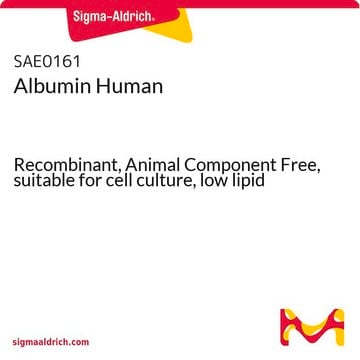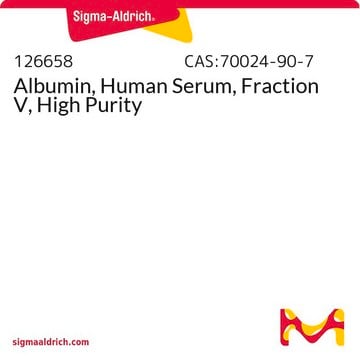A7223
Albumin human
recombinant, expressed in Pichia pastoris, 5% in aqueous buffer, ≥90% (SDS-PAGE)
Synonym(s):
Albagen™, rHSA
About This Item
Recommended Products
biological source
human
Quality Level
recombinant
expressed in Pichia pastoris
Assay
≥90% (SDS-PAGE)
form
solution
mol wt
monomer ~67 kDa
concentration
5% in aqueous buffer
technique(s)
cell culture | mammalian: suitable
UniProt accession no.
shipped in
wet ice
storage temp.
2-8°C
InChI
1S/C3F8/c4-1(5,2(6,7)8)3(9,10)11
InChI key
QYSGYZVSCZSLHT-UHFFFAOYSA-N
Gene Information
human ... ALB(213)
Looking for similar products? Visit Product Comparison Guide
Application
Biochem/physiol Actions
Physical properties
Physical form
Other Notes
Legal Information
Storage Class Code
12 - Non Combustible Liquids
WGK
WGK 3
Flash Point(F)
Not applicable
Flash Point(C)
Not applicable
Certificates of Analysis (COA)
Search for Certificates of Analysis (COA) by entering the products Lot/Batch Number. Lot and Batch Numbers can be found on a product’s label following the words ‘Lot’ or ‘Batch’.
Already Own This Product?
Find documentation for the products that you have recently purchased in the Document Library.
Customers Also Viewed
Our team of scientists has experience in all areas of research including Life Science, Material Science, Chemical Synthesis, Chromatography, Analytical and many others.
Contact Technical Service




